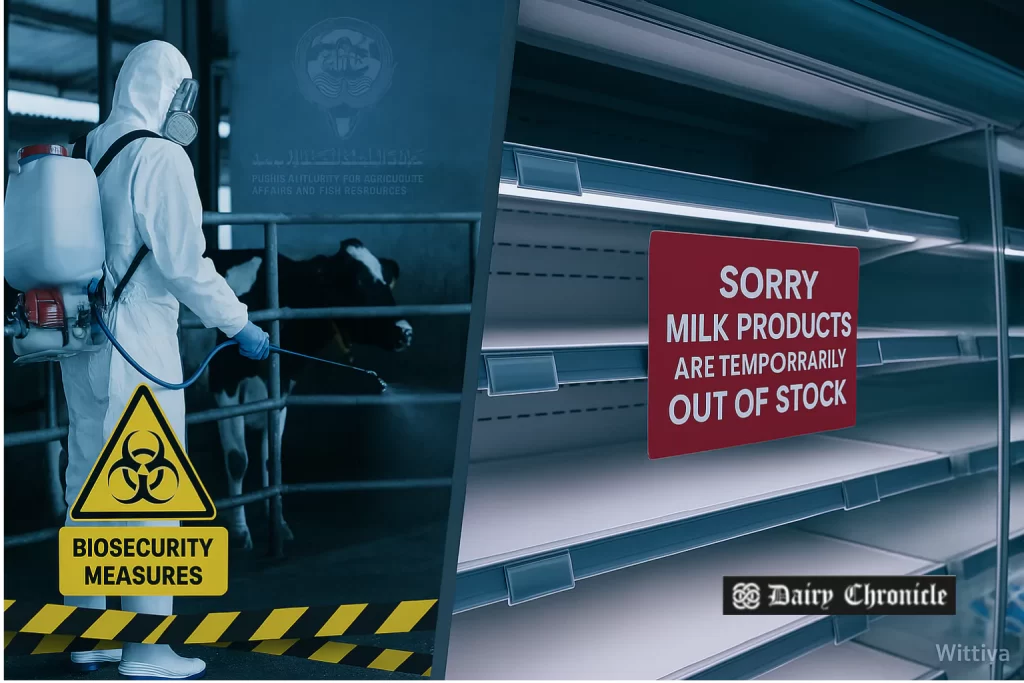Kuwait’s Public Authority for Agriculture Affairs and Fish Resources reported a widespread outbreak of foot-and-mouth disease (FMD), infecting over 8,000 cows and slashing fresh milk production by 75%. With 31 of the nation’s 44 cow farms affected, authorities are implementing emergency sanitation protocols and awaiting vaccine supplies to contain the spread and stabilize the dairy secto
The Public Authority for Agriculture Affairs and Fish Resources in Kuwait confirmed that more than 8,000 cows have been infected by a major outbreak of foot-and-mouth disease (FMD), leading to a significant 75% decline in daily milk production across the country. The authority, which oversees livestock health and agricultural development in the Gulf nation, is now spearheading containment efforts.
Director General Salem Al Hai stated that 31 out of Kuwait’s 44 cow farms have reported infections over the past month. The outbreak has already caused the death of 71 cows, though 952 have recovered. The impact on milk production has been severe, falling from 250,000 liters per day to just 100,000 liters.
To control the spread, the authority is prioritizing sanitation protocols and urging all farm operators to sterilize milking equipment and other tools regularly. Al Hai emphasized the importance of training farm staff on preventive measures, especially while vaccines are still two weeks away from arrival.
“We need immediate compliance with hygiene standards and a unified response to contain the disease,” Al Hai noted, highlighting that early containment is essential to restoring Kuwait’s dairy production and protecting the meat supply chain.
The authority’s response also includes coordination with veterinary services and agricultural inspectors to monitor farms and enforce biosecurity practices.
Foot-and-mouth disease is a highly contagious viral illness affecting cloven-hoofed animals, and while it is not typically dangerous to humans, its economic impact on the livestock industry can be devastating.
With the dairy sector under pressure, officials are calling for collective responsibility across Kuwait’s agricultural landscape to ensure recovery and future resilience.



